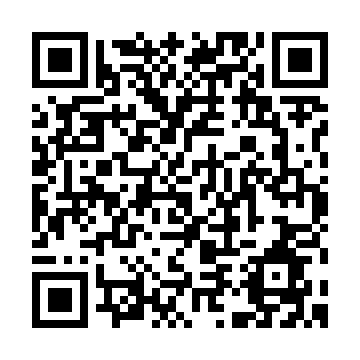Mobile Fidelity
Warren Zevon - Excitable Boy(Numbered Hybrid SACD)
A Consummate Fusion of Wit, Humor, Satire, Honesty, and Chaos: Warren Zevon's Excitable BoyCaptures Dark Elements of American Culture and Includes "Werewolves of London"
Sourced from the Original Analog Tapes and Housed in a Mini-LP Gatefold Package: Mobile Fidelity's Numbered-Edition Hybrid SACD Plays with Explosive Dynamics and Airy Openness
Excitable Boy established Warren Zevon as rock's gonzo figurehead – or, as Jackson Browne aptly called him, "the first and foremost proponent of song noir." A supreme collision of over-caffeinated energy, acerbic wit, dark humor, irreverent reporting, bittersweet romance, swept-under-the-rug truth, and illicit desire sent up with booze, pills, and therapist confessions, the breakthrough album zeroes in on frightening aspects of American culture with an incisiveness that's even sharper today than upon the effort's release in 1978. And the music has never sounded so excitable.
Sourced from the original analog master tapes and housed in mini-LP gatefold packaging, Mobile Fidelity's numbered-edition hybrid SACD elevates the best-selling album of Zevon's distinguished career to audiophile status. Co-produced by Browne and Waddy Wachtel – and featuring contributions by members of Fleetwood Mac plus Linda Rondstadt, J.D. Souther, Leland Sklar, and Browne – the platinum-certified record now plays with a verve and explosivity that match its subject matter. Listeners will experience wide separation between the instruments; full-range dynamics that underscore the depth of the arrangements; sterling transparency that draws a through-line to the original sessions at the Sound Factory; warmth on a par with the finest analog recordings; presence that elevates the body and tenor of Zevon's vocals; and an openness and balance resulting from the freedom that Browne and Wachtel afforded recording engineer Greg Ladanyi.
That lenience coincides with the record's primary themes and speaks to the freewheeling spirit in which it was made. Excitable Boydelightfully teeters on the verge of chaos – and, often, causes us to question what the zany singer-songwriter has gotten into (and what he is going on about). Not yet two years removed from his critically acclaimed self-titled major-label debut, Zevon had already established a fabled reputation for debauchery and grown more perceptive about the twisted underbelly and self-destructive nature of U.S. politics and society.
The singer's astuteness – and lethal combination of the personal and public – proves intoxicating. Excitable Boy comes on as a seamless collection of nine hard-boiled stories owing to a tradition established by Raymond Chandler, continued by Hunter S. Thompson, and carried into the 21st century by "Breaking Bad" and "Better Call Saul" creator Vince Gilligan. We may want to close our eyes and turn away from his reports, but Zevon makes doing so impossible. The protagonists' actions, behaviors, appetites, and decisions are too intriguing and forthright; their impact hits too close to home. We mingle, stare, draw closer. In a perverse way, Excitable Boy is our shared carnage – a wickedly funny and ever-germane pile of wreckage.
Nowhere is that more evident than in Zevon's tales involving America's domestic and foreign enterprise. In "Roland the Headless Thompson Gunner," co-written with former mercenary David Lindell, Zevon crafts a story of bloodshed, vengeance, and profiteering starring a mercenary who fights in the Congo Crisis only to get exterminated by the CIA because of his killing skills. Yet the soldier of fortune gets the last laugh: Resurrected as a ghost, he slays his assassin, and, like a zombie, roams the landscape for eternity. "Veracruz" is similarly sobering and historically rooted. Based on the U.S. occupation of the port city during the Mexican Revolution, Zevon's account – hitched to a gorgeous arrangement – simultaneously offers a sympathetic view of those crushed by U.S. transgressions and functions as a smart take on the past.
Ghosts of the present haunt the title track, a berserk affair sent up with a lively doo-wop chorus and lilting barroom piano. Titled after a nickname friends gave Zevon, "Excitable Boy" foreshadowed the government's decision to slash mental health-care budgets and involves the same concepts of privilege explored throughout the record. Speaking of privilege: The cascading "Lawyers, Guns, and Money" – written after Zevon and a colleague joked about being bailed out of a precarious situation by Warner Bros. president Joe Smith – addresses personal entitlement and U.S. diplomacy in no uncertain terms.
Ironically, and likely intentionally, Zevon sets up everything by opening the record with its most upbeat and innocuous track, "Johnny Strikes Up the Band." The mid-tempo adrenaline shot turns sadness to joy while suggesting that the material that will follow will adhere to the same vibe. Consider the song Zevon's way of displaying his shrewdness via the sequencing of a long-playing record. Though he gives listeners a breather with "Nighttime in the Switching Yard" and hints at calm on "Tenderness on the Block," the serenity of the latter gets shattered by what he says in between the lines of the verses.
There's nothing subtle about "Werewolves of London," a cult-favorite hit that stemmed from Zevon's association with Phil Everly. Akin to those in Bob Dylan's "Desolation Row," the deceptively comedic lyrics blend pop culture with classically grotesque imagery en route to establishing a riotous storyline. Dubbed a "dumb song for smart people" by Zevon, the cut zoomed into the BillboardTop 30 and remains beloved for its fun-spirited "ah-hoo" choral bits. Its appeal is fitting. Like the hairy creatures in the song and the ghosts wandering the corridors of Excitable Boy, Zevon's legacy still runs amok via the grooves of his finest studio work. Draw blood, indeed.
Track List

